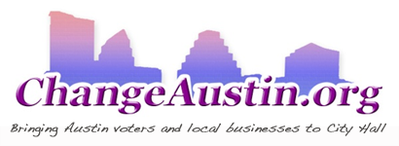The future of Austin – 40% roadway congestion after spending $27 billion.

Monday night, in a stunning acceptance of a wholesale drop in Austin’s quality of life and economic vitality, the CAMPO transportation board, comprised of local elected officials, voted 17-2 to prolong a pretend transportation solution which strangles the region’s mobility.
CAMPO accomplished its perverted NO GROWTH plan in the same grotesque way a tumor kills its host – by choking off the organs and causing them to fail. Planning to fail. Planning for a future that is worse than today and striving to get there. Driving the region into a brick wall of congestion.
This multi-modal wet dream of homebuilders, road builders, land speculators and meddlers has no reliable funding. The citizens in the region have no clue what their elected leaders settled for and what’s in store for them.
For comic relief, we give you this ridiculously funny plan by TxDOT to sue 150,000 individuals for non-payment of tolls. Thanks to attorney Bill Gammon who has been fighting the idiot tollers for years now, you will enjoy this: 3 minute KXAN report.
And, here’s what ChangeAustin’s Brian Rodgers told the board:
“People are no longer angry, they’re scared because their property taxes are climbing beyond their capacity to pay them, cutting into the bone of their daily finances. We cannot ask them to carry the burden of building more roads without shared sacrifice…” Read the rest below.
ANNOUNCEMENT!
Carver Library, 1161 Angelina, Austin
Thursday, June 17th, 6:30 pm
.
Brian’s Entire CAMPO Talk
ChangeAustin.org is a taxpayer advocacy group and this month we’ve been holding workshops in Austin, Round Rock, Pflugerville and Bastrop to teach property owners how to protest their tax appraisals – and I can tell you – people are no longer angry, they are scared. The property tax well has run dry. Their financial world has changed yet they KNOW their local government will ask for more. Their property taxes are climbing beyond their capacity to pay them, cutting into the bone of their daily finances. We can’t ask them to carry the burden of building more roads without shared sacrifice, which is what Fort Worth has done.
Fort Worth implemented road impact fees two years ago at $2,000 per new home with a separate schedule for other property types.
Road impact fees were passed by the mayor and council with full support from the Greater Fort Worth Builders Association, Associated General Contractors, the AIA and the Greater Fort Worth Real Estate Council who stated, “Solving the traffic congestion puzzle will take sacrifice from all of us. Our profession has to be part of the solution. We support the proposed impact fee. We don’t want Ft Worth to become where the west begins and mobility ends.”
During the 2008 vote, Mayor Mike Moncrief said the following:
“Ever since the legislature passed the bill that allows impact fees, it has been a tool this city has chosen NOT to utilize. In Fort Worth sometimes we walk a little slow, sometimes we talk a little slow, sometimes we act a little slow. In this particular issue, I submit that’s exactly what’s happened. Had we done so somewhat earlier, before a lot of the growth had taken place, maybe we wouldn’t be so far behind. But I don’t think there is anyone that would disagree that that’s where we find ourselves – playing catchup with infrastructure. It’s the city’s responsibility to address it. We can’t do it with our limited budget. No way, no how. Anybody who thinks we can is sadly mistaken and you better find another basis for your argument. This is something that this entire council, all of us, know this is something we have to do. We got here by everyone having skin in the game. Fort Worth Texas is headed in the right direction by implementing impact fees for future development.”
Are road fees harmful to economic growth? The City of Fort Worth and the Fort Worth Chamber of Commerce shared the cost of a $225,000 study which concluded that the current transportation impact fee program will overall have a beneficial impact on the city of Fort Worth creating 75 jobs, $8.3 million in additional business output each year and $4.7 million in additional value added per year.
The time has come for Central Texas to begin the process. Thank you.
